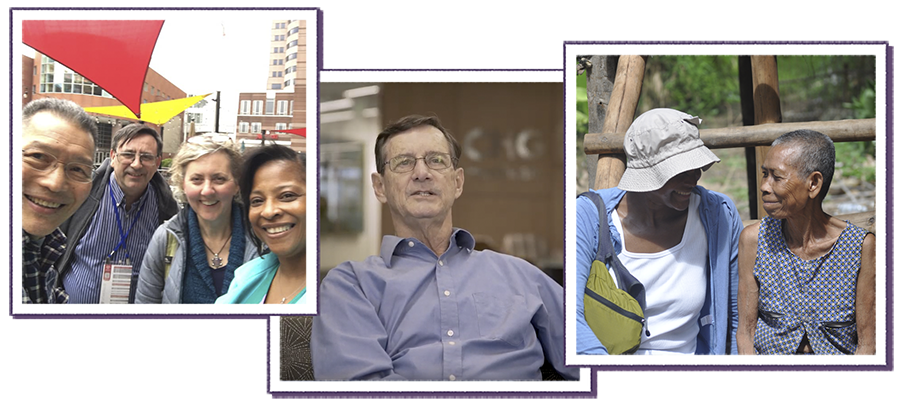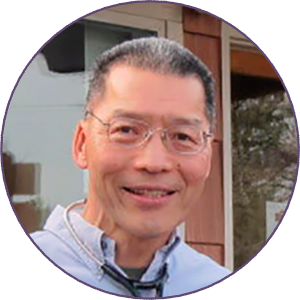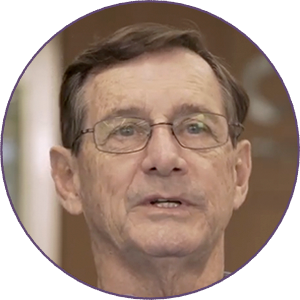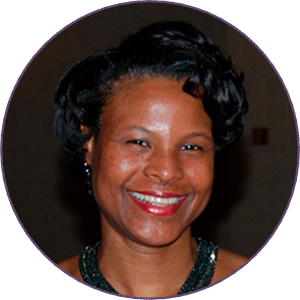
The flexibility of locum tenens work allows physicians across the country to travel, meet new people, and experience exciting new work environments each year. It also gives them time for another rewarding pursuit: serving others in need.
Through locums, physicians across the country are giving back in ways that have enriched their lives and the lives of others in the communities where they serve. We’re spotlighting three of them here.
The Good News Clinic
The opportunity to serve people in rural communities without access to medical services was something that initially interested internal medicine physician Dr. Robert Sayson about being a physician. After working in the field for a time, he became bothered by how many patients he saw who could no longer afford care.
Dr. Sayson says he remembers a young patient in particular who kept coming in and out of the emergency room because he couldn’t afford insulin. That young man was later found dead from hypothermia in a tent behind a shopping center.
“I’d been to Africa, I’d been to Pakistan, India, and Bangladesh and Kazakhstan and Philippines, and I saw that we can accomplish so much over there with so little, but here we spend so much and we accomplish so little,” he said.
After attending an annual Compassion Connect event aimed at providing resources and help for the poor, Dr. Sayson says he wondered why that care couldn’t be offered more than once a year. That’s when he and his wife decided to start a clinic in Portland, OR, to serve displaced people without medical insurance: the Good News Clinic, which opened in 2007.
Along with the medical services they offer at their clinic, the Saysons and their team provide a substance abuse counselor, mental health counselors, diabetic educators, and other opportunities for members of the community to learn how to prevent illness. His locums tenens earnings have helped him generate funding needed to keep the clinic open.

“It helped bring on nurse practitioners and help pay salaries for young providers who have young families and gave them the means to serve the poor and yet, be able to do it with a living wage,” he said.
Along with the clinic, Dr. Sayson gives back by providing foot care at homeless shelters and taking a medical team to homeless populations in the area every two months to give them care.
He says helping the sick and the needy is the most rewarding part of his career.
“You try to help them and they’re just very grateful, because they realize that they’re being shown grace,” Dr. Sayson said. “That’s the joy. It keeps me going and it keeps me coming back every day to see more of what God’s going to do in people’s lives.”
Volunteering wherever you go
Dr. David Hubler is an orthopedic surgeon who has worked locums for 10 years. One of the things he’s enjoyed most about it is being able to bring his wife along with him. Both of them get involved with the community and serve others on their downtime.
“She usually ends up volunteering at different places wherever we go,” Dr. Hubler said. “She may volunteer at historical societies or Cub Scouts, whatever she can get involved with wherever she goes.”
Dr. Hubler says his work allows him and his wife to get to know the communities really well. It also makes a variety of service opportunities possible.
“We really like to learn all about the community and become part of it,” he said. “And the clinic and hospital there, when you’re there for quite some time, they really appreciate you coming.”

Hurricane Katrina and helping the needy
Hospitalist Dr. Tammy Allen initially sought out locum tenens work because she wasn’t exactly sure what she wanted to do. She’s since worked in locums full-time for eleven years.
Locums has allowed Dr. Allen to serve in many poverty-stricken communities, and one of the things she’s loved most about it is that it’s given her more time to serve.
Dr. Allen’s work schedule allowed her to hold a free, two-week clinic after Hurricane Katrina to help communities upended by the storm. Since 2009, Dr. Allen has also worked at a free healthcare clinic called Coastal Medical Access Program (CMAP) to help individuals in need.
“It has been such a rewarding experience for me to be able to give back to this community,” she said.

Dr. Allen’s ultimate goal is to do Doctors Without Borders when she’s close to retirement.
Locums work puts Dr. Allen in a unique position, and it’s something she’s grateful for.
“Most of the people I know, they’re kind of in my shoes in the sense that they’re still trying to get that retirement stuff, so they’re working really hard right now,” she said. “They’re not doing as much of the volunteer stuff that they would like to do.”
“I’m glad that I’m getting to do it, because I know sometimes you don’t get to that point,” she added.
Dr. Allen feels service is something doctors owe the communities they serve, and locums allows many the time and resources to do it.
“I think that as physicians we have been given so much and I think that we have a responsibility to give back,” she said. “I really do believe that.”


